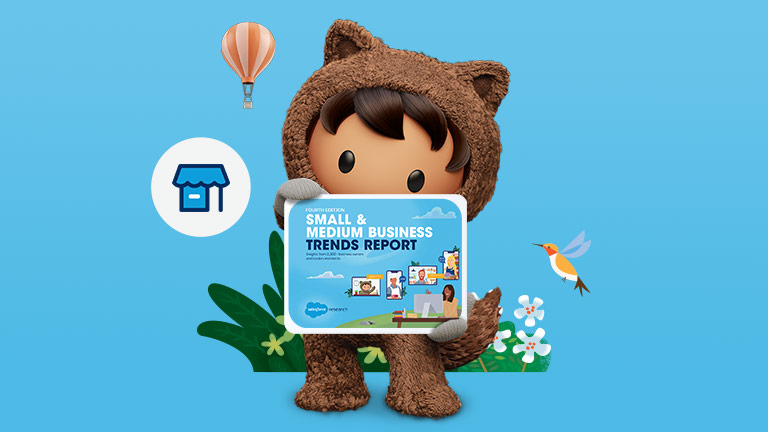There’s no secret ingredient for small business success. Rather, there are a variety of factors for why a small business succeeds or not. And as digital technology advances, new opportunities arise for small business owners on a daily basis. But not without an equal share of challenges.
Small business success: Challenges and limitations
When compared to large-scale enterprises, 53% of SMB leaders reported feeling a competitive disadvantage in “meeting customer expectations.” This comes as no surprise, considering how customers typically expect the same, high-quality experiences from every business they frequent. As business's budget constraints, for example, may not be top of mind for consumers when browsing online or in person.
Many small business owners have limited access to resources, capital, and investment opportunities. Further constraints include finding the right staff and time to focus on business activities.
Despite these limitations, the number of small and medium-sized businesses (SMBs) continues to rise. Between 2000 - 2020, the estimated number of SMBs worldwide rose 74.8%. In the digital age, SMBs have the tools to compete in industries dominated by large corporations.
How to gain a competitive edge as a small business
Many organisations rely on cloud computing and an array of digital technologies for every aspect of their operations. The traditional, “offline” business is becoming obsolete. Now, brands compete to strengthen their online presence; an integral part of the modern business model.
If you’re new to the virtual world, starting an online business can quickly become overwhelming. Where is the best place to start? And how do you determine which system is right for you?
There are a seemingly endless amount of digital services and tools at your disposal. So you should start by choosing a Customer Relationship Management (CRM) platform to keep your business, employees, and customers organised. A CRM system is great for collecting key insights into your customers. It also safely stores all your data in one, central workspace that your team can collectively access.
CRM platforms are best known for their ability to track every business interaction. So you can access a historical timeline of every interaction your business had with a prospect, sales lead, customer, supplier, and another business.
CRM systems help businesses:
Communicate with a wide and varied audience
Gain a better understanding of your target market
Improve team productivity and collaboration
Access real-time data and customer insights
Create an end-to-end customer journey map
Choose the right CRM to support your small business success
There are many CRM platforms available on the market that can manage your business interactions and increase your engagement across channels. Keep in mind, each platform has its own suite of features and a range of solutions that may not apply to your business. So it’s important to carefully consider your options.
To get you started, here are a few key features to consider when choosing a CRM platform:
Integrated platform: a CRM is the central hub for all your cross-channel engagement. So make sure the system you choose can integrate with apps and/or products for marketing, sales, e-commerce, customer service, and more.
Scalability: select a system that you can scale according to the needs of your business. This is especially important when your customer base and team starts to rapidly grow.
Customer Support: make sure the platform you choose has an excellent customer service team.
Cloud-Based CRM: accessing your information at any time, from anywhere, is essential. This is a must-have feature for businesses with remote employees, mobile sales teams, and event staff.
Getting on course for small business success
Always remember, gaining a new customer is just the beginning. You must work to establish good rapport so they keep returning to your business. This is a critical area where small businesses have an advantage over large corporations; they can provide consistent, five-star customer service.
However, as a business grows, it can become difficult to maintain these standards. This is why choosing a CRM platform in the early stages of development is critical. With a robust CRM system, you can automate daily tasks so you can focus on serving customers.






